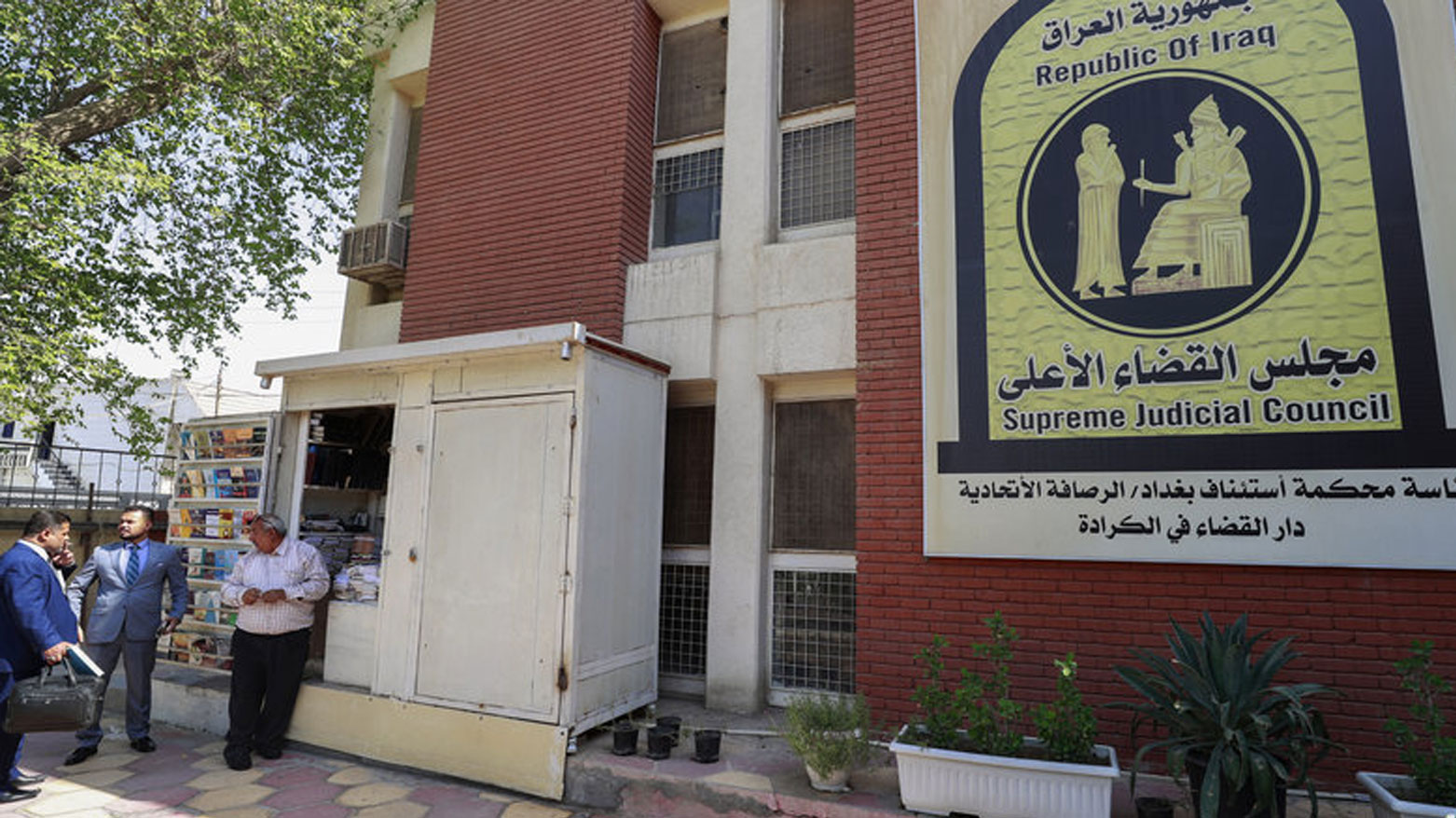Spike in Divorces: Iraq Sees Over 6,300 in a Single Month
Alongside socioeconomic pressures, changes to Iraq’s Personal Status Law—criticized for undermining women’s rights—have become a key factor driving the country’s rising divorce rates.

ERBIL (Kurdistan24) – Iraq recorded 6,392 divorce cases during the month of February 2025, according to new data released on Sunday by the Supreme Judicial Council (SJC), underscoring the growing societal challenge of marital instability across the country. Baghdad once again topped the national chart for both divorces and marriages, with different districts leading in each category.
The report reveals that alongside the divorces, a total of 31,411 marriages were officially registered in February. While the number of marriages continues to significantly outpace divorces, the steady upward trend in separations remains a matter of concern for social analysts and policymakers alike.
Baghdad's al-Rusafa district led the nation in registered marriages, surpassing 5,000 contracts in February alone. In contrast, the highest number of divorces was reported in al-Karkh, followed by al-Rusafa and the southern city of Basra.
The concentration of both marriages and divorces in the capital highlights the social and demographic dynamics of Iraq's most populous city.
The latest figures represent a slight increase from the same period last year. In February 2024, the number of divorce cases stood at 6,324, suggesting a persistent and gradual rise in marital dissolutions. This trend has become increasingly evident over the past few years, with 2024 closing at 72,842 divorce cases across Iraq, compared to 320,459 marriages.
Sociologists point to a range of contributing factors behind the rise in divorce, particularly among young couples. Economic pressures remain one of the leading causes. Iraq continues to face high unemployment, limited job opportunities, and rising living costs, which place a heavy strain on newly married couples.
According to a report by Jummar Media, financial instability and lack of affordable housing have made it increasingly difficult for couples to sustain long-term relationships, leading to a spike in divorce rates.
Another major factor is the role of social media, which has reshaped interpersonal communication and expectations in romantic relationships. In an article published by 1001 Iraqi Thoughts, experts warn that social media addiction contributes to mistrust and unrealistic comparisons among couples, further exacerbating tensions within marriages.
Beyond these socioeconomic factors, Iraq’s legal framework governing marriage and family life is also under intense scrutiny. The country's Personal Status Law—originally hailed for its secular foundations—has been the subject of a controversial amendment that many critics believe undermines women’s rights and could further destabilize families.
In 2024, the Iraqi Supreme Judicial Council backed an amendment to the law that would permit religious sects to dictate personal status matters, including marriage, divorce, and child custody. This move has sparked fierce debate, with women’s rights activists warning it opens the door to legalized child marriage and strips women of legal protections in cases of abuse or forced separation.
Read More: Iraqi SJC backs controversial Personal Status Law amendment
The Iraqi Parliament has since advanced this amendment despite widespread public outrage. According to another Kurdistan24 report, critics argue that the changes would fragment the legal system and further marginalize vulnerable groups, particularly women and girls. Lawmakers have faced criticism for proposing that girls as young as nine could be legally eligible for marriage under certain sectarian interpretations—a proposition that has drawn condemnation from international human rights organizations.
Meanwhile, domestic violence remains an unresolved crisis in Iraq. Legislative efforts to pass a comprehensive domestic violence law have stalled in Parliament, leaving many women without legal recourse or protection. As previously covered by Kurdistan24, the findings revealed that thousands of women endure abuse with little institutional support—an ongoing reality that often drives them to seek divorce as a means of escape.
As Iraq navigates post-conflict recovery and economic reform, the personal lives of its citizens continue to reflect broader societal transitions. The rising divorce rate, while not unique to Iraq, underscores the need for urgent legal reforms, stronger social support systems, and a national conversation on marriage, gender roles, and the legal frameworks that govern family life.
Without addressing these deep-rooted issues—especially the regressive changes proposed to the Personal Status Law—the country risks entrenching inequality and further weakening the foundation of the Iraqi family.